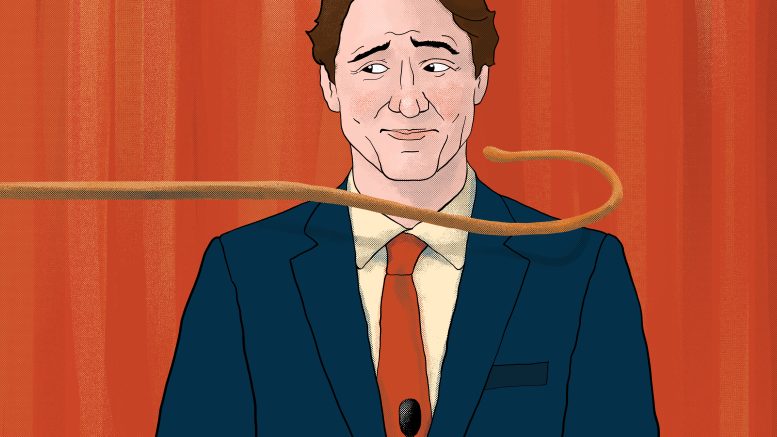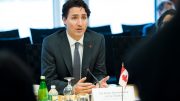Across different media outlets, the news paints a dire picture for the prime minister. However, this position should not spell the end of the Liberal government. The Liberal party can save itself before the general election expected to take place by October 2025.
The Liberals are dealing with multiple crises at once, including the cost of living crisis and the housing crisis. These painful memories tend to stick with people. This is certainly true for the United Kingdom, where the Labour Party has not been elected since shortly after the global financial crisis. Justin Trudeau’s Liberals may be facing the same fate.
Trudeau’s Liberal party has held the reigns of government since 2015, outlasting diplomatic tensions with the United States under the Trump administration, multiple ethics scandals and the height of a global pandemic. The Liberal party has defied the odds, clinging to power under two minority terms.
Unfortunately, the Liberal government is losing popularity lately. Polling from Ipsos has found that nearly three quarters of Canadians feel that Prime Minister Trudeau should step down by the next election, yet he has stated that he intends to stay on. An increasingly unpopular prime minister leading through a post-lockdown economy a year before the next general election is a breeding ground for an overhaul from within the Liberal party’s ranks.
The Liberal party has two options: sink or swim. And in order to swim, it ought to rid itself of the anchor that is Trudeau. After eight years at the helm, Liberal members of parliament (MPs) have a big decision to make.
It may seem like a dilemma to either follow the man who propelled the party to power or reform the party and campaign on a renewed platform in 2025. The latter presents a great risk to whoever would lead this hypothetical take over for the party’s golden boy. However, I would argue that it would present significant advantages to the party both in the short and long terms.
The most significant advantage would be greater control over the narrative. If the Liberal party were to oust Trudeau, it could hypothetically distance itself from him and his failures while taking credit for his successes.
I think this campaign would revolve around the economy, and it would see both the prime minister and the minister of finance villainized or ostracized in order to rebrand the Liberal economic policy framework. Hijacking the narrative in this manner would back Pierre Poilievre’s Conservative party into a corner, as it would give the Liberal party room for deflection in case they are ostracized while maintaining the benefits of incumbency.
This would bode well for voters who have not decided whether they truly identify with the current Conservative party — a party that has chewed through multiple leaders since 2020 — also giving the Liberals an opportunity to play the stability card.
The second most significant advantage would be incumbency itself. A leadership contest within the ruling party would culminate in a new premier promptly taking over from Trudeau. This would give the new prime minister time to craft a new image aimed at consolidating power at the next election.
Getting rid of Trudeau and some of his key associates would be crucial. But keeping some of these MPs on the ballot for the next election would not only be advantageous but necessary to gaining a majority or maintaining a minority.
This means that having just the right amount of MPs from the current cabinet would go a long way to keeping the peace within the party ahead of the next election. In the long run, a mutiny will aid the electability of the Liberal party.
So, who is well positioned to succeed Trudeau as the leader of the Liberal party? Former governor of the Bank of Canada Mark Carney would be a great pick as he enjoys decent support and would bring a new influence in terms of economic policy. However, he wouldn’t have enough political clout to topple Trudeau as leader of the party.
Melanie Joly would be better positioned to outmaneuver Trudeau, and she can appoint Carney to the Ministry of Finance, and possibly as deputy premier to boost her own prestige. A young female leader can drum up support from different political spheres, particularly those who vote for the New Democratic Party, which is a greater obstacle to the Liberal party than the Conservatives.
With the rising cost of living, the housing crisis and plummeting poll numbers, Canada’s Liberals have a big decision to make, and whatever that decision is will have profound consequences on the party and the nation.





